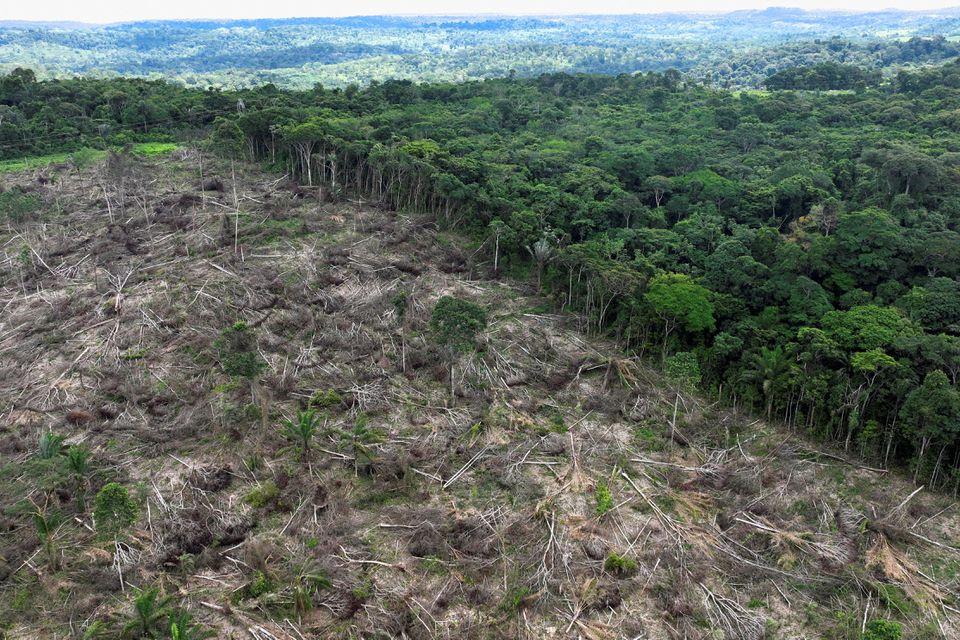Efforts to reduce deforestation in Brazil deteriorated during the last decade and the current administration has an opportunity to increase the resilience of deforestation interventions according to researchers.
Over the last decade (2012-2021) deforestation interventions and the authorities carrying them out have eroded in Brazil. While deforestation rates in the Amazon have been reduced substantially in the 2000s, recent years have seen a resurgence in them. Until recently, environmental policies and programs were actively undermined on various levels through political meddling, rendering the enforcement of environmental policy ineffective. Future efforts to protecting tropical forests have to consider the resilience of policy interventions more strongly to reduce deforestation sustainably.
Prof Michael Obersteiner, Director of the Environmental Change Institute, at the University of Oxford, has co-authored the article ‘Eroding resilience of deforestation interventions—evidence from Brazil's lost decade’ published in Environmental Research Letters.
Professor Obersteiner, co-authored the study led by Nikolas Kuschnig, Research Associate from the Vienna University of Economics and Business, along with Lukas Vashold, also a Research Associate from the Vienna University of Economics and Business and Dr Aline Soterroni, a Research Fellow at the Nature-based Solutions and Oxford Net Zero Initiatives at the University of Oxford.
Brazil holds more than 60 percent of the Amazon rainforest, the largest tropical forest in the world. It provides livelihoods to indigenous peoples, plays an important role in sustaining a local climate suitable for agriculture and is a crucial piece in the puzzle to fight global climate change. Continuing deforestation puts these ecosystem services in jeopardy and risks reaching tipping points where some of these impacts may become irreversible.

Prof Michael Obersteiner said: “Earlier successes of Brazilian interventions serve as examples, but the failures of a lost decade must be addressed. We are seeing a change in deforestation patterns and a fast and accelerating forest loss."
An important factor in their research is the role of the Brazilian Institute of Environment and Renewable Natural Resources (IBAMA), the executive arm of the Ministry of the Environment, and its ability to enforce regulations. The researchers identified the gradual dismantlement of environmental legislation, the erosion of institutions responsible for enforcement and monitoring, and increases in anti-environmental rhetoric.
Lukas Vashold said: “We found that enforcement activity has reduced considerably in recent years, and sanctions have effectively become inconsequential.”
And even when fines are given, their study found they had little effect. Since the since the beginning of 2019, only around 2.5% of fines have been approved for payment and less than 0.1% of the total amount fined has actually been paid.
Nikolas Kuschnig said: “Our results paint a clear picture of the impact of eroding deforestation interventions in Brazil, best reflected by the severely reduced efficacy of environmental fines. IBAMA, the responsible institution, plays a pivotal role in Brazil's control-heavy system of interventions, and as it loses its ability to exert this control, the real and perceived threat of sanctions declines.”
The researchers believe the answer could be incentive-based interventions, in which stakeholders have a vested interest, such as steering taxes, which increase the costs of undesirable behaviour without relying on the threat of sanctions and restraints of agricultural credits.
Professor Obersteiner concluded: “Future efforts for sustainable forest protection should be aimed at strengthening institutions, spreading responsibilities, and redistributing the common value of forests via incentive-based systems. The current government in Brazil has an important opportunity to design resilient deforestation interventions that can sustainably protect the Amazon in the long-term.”

